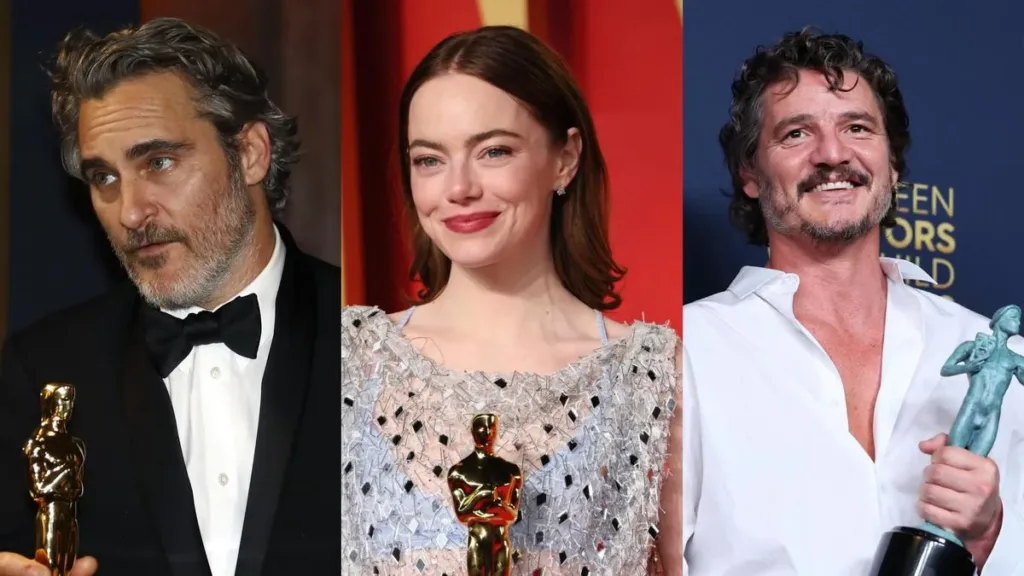Cinematographer Darius Khondji has confirmed that Ari Aster’s upcoming film Eddington is scheduled to premiere at the Cannes Film Festival. Khondji made the comment during an appearance at the Doha Film Institute’s Qumra event over the weekend, where he spoke about his recent and upcoming work.
The French-Iranian cinematographer, a two-time Oscar nominee, said he will be returning to New York to complete color work on Eddington with longtime collaborator Yvan Lucas. “I’m going back to New York to do the color for Eddington that’s going to Cannes, I hear,” Khondji told Deadline. “Ari showed me the film. I heard it was going to Cannes two weeks ago.”
The film, financed and produced by A24, stars Joaquin Phoenix, Pedro Pascal, and Emma Stone. Described as a dark comedy Western thriller, Eddington follows a small-town sheriff in New Mexico navigating a power struggle with a corrupt mayor during a pandemic. Additional cast members include Austin Butler, Micheal Ward, Deirdre O’Connell, Clifton Collins Jr., and Luke Grimes.
Khondji said the project doesn’t resemble Aster’s previous films in tone or structure. “Ari is a deep, strong filmmaker,” he said in a separate interview with Screen. “He has the perception of things that reminds me of Bergman or Polanski. His way of telling this story is shaped by that sensitivity.”
Filmed one year ago in New Mexico, Eddington was shot in a 1.85:1 aspect ratio—an intentional decision made in opposition to external pressure to use widescreen. “Anyone would’ve shot it in Cinemascope,” Khondji said. “We decided not to.”
Aster is both writer and director on the film, and is producing alongside Lars Knudsen through their Square Peg production company. This will be Aster’s fourth feature, following Hereditary, Midsommar, and Beau Is Afraid. A24 began international sales for Eddington at the European Film Market in February.
Khondji is also working on Josh Safdie’s Marty Supreme, which stars Timothée Chalamet as professional table tennis champion Marty Mauser. Khondji said the film includes 140 characters and features an appearance by French highwire artist Philippe Petit. He expects to finish coloring the film with Lucas in July. “It will be ready at the end of the year,” he said.
The cinematographer said working with Josh Safdie without Benny was not a major shift. “Josh has incredible energy to make films, like no one else I’ve experienced,” he said. “In every shot, he surprises you. He works with intuition and momentum.”
Marty Supreme was shot on film with increased grain to add texture, according to Khondji. “The grain is like the skin. It’s a very important thing on film.”
Both Eddington and Marty Supreme are backed by A24, which will distribute the films in the U.S.
During his Qumra masterclass, Khondji criticized overreliance on digital tools in contemporary filmmaking, particularly the digital intermediate process. “Digital intermediate is a very dangerous process,” he said. “You should be careful not to push the film—the colours, the blacks.”
He recalled early experiences with digital post-production, including on Sydney Pollack’s The Interpreter, which led him to question the shift away from chemical processing. “I didn’t like the process. I thought we were losing ourselves into something that is not real.”
Khondji also expressed strong preferences on format. “I would turn down a movie in 3D,” he said. “It’s terribly unappealing.” He also noted that while certain directors like James Cameron and Christopher Nolan have used formats like 3D and Imax effectively, the vast majority of applications feel unnecessary.
Asked about prior work, Khondji said he was not especially proud of his work on the 2004 film Wimbledon. “I love tennis; I don’t think we did it really well,” he said, contrasting the film with Luca Guadagnino’s Challengers, which he praised.
He spoke more positively about working with Bong Joon Ho on Okja, describing how the production team treated the CGI character as if she were physically present. “They made me believe that she was alive, she was here. We put her on screen—now she exists.”
Khondji also said he might consider another musical project after previously turning down several following his work on Evita. “I don’t want to close doors,” he said.
